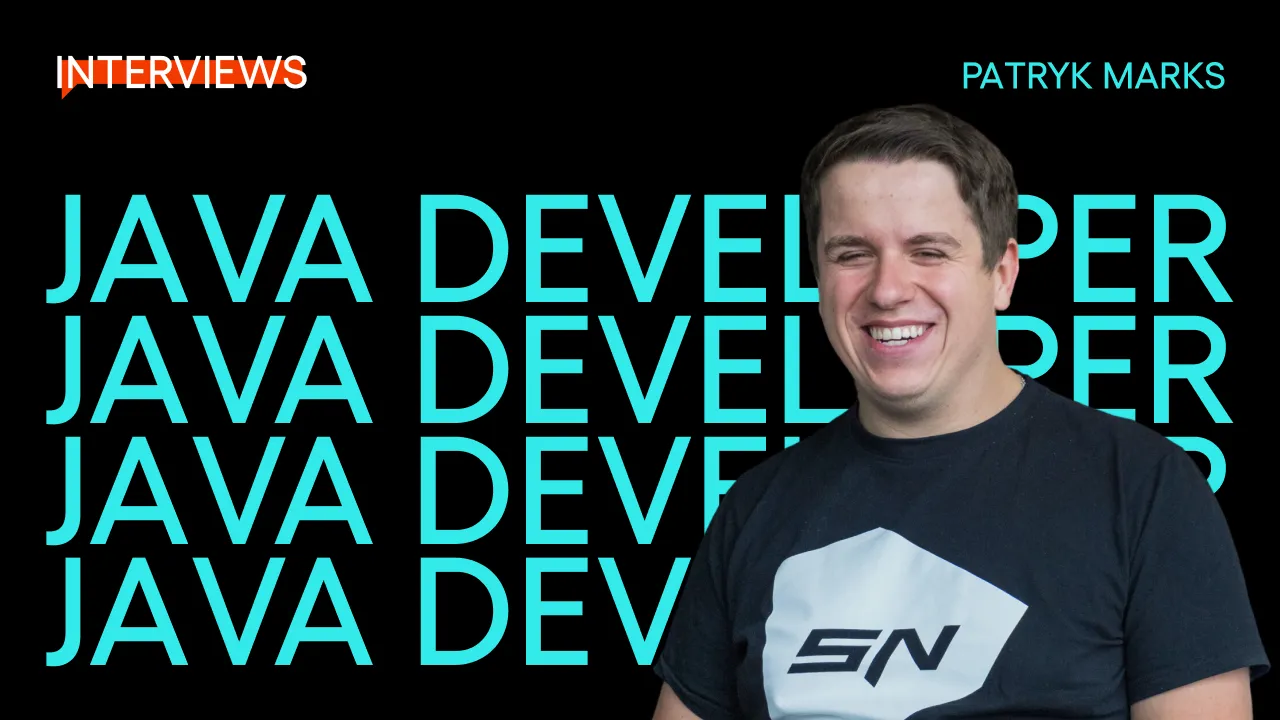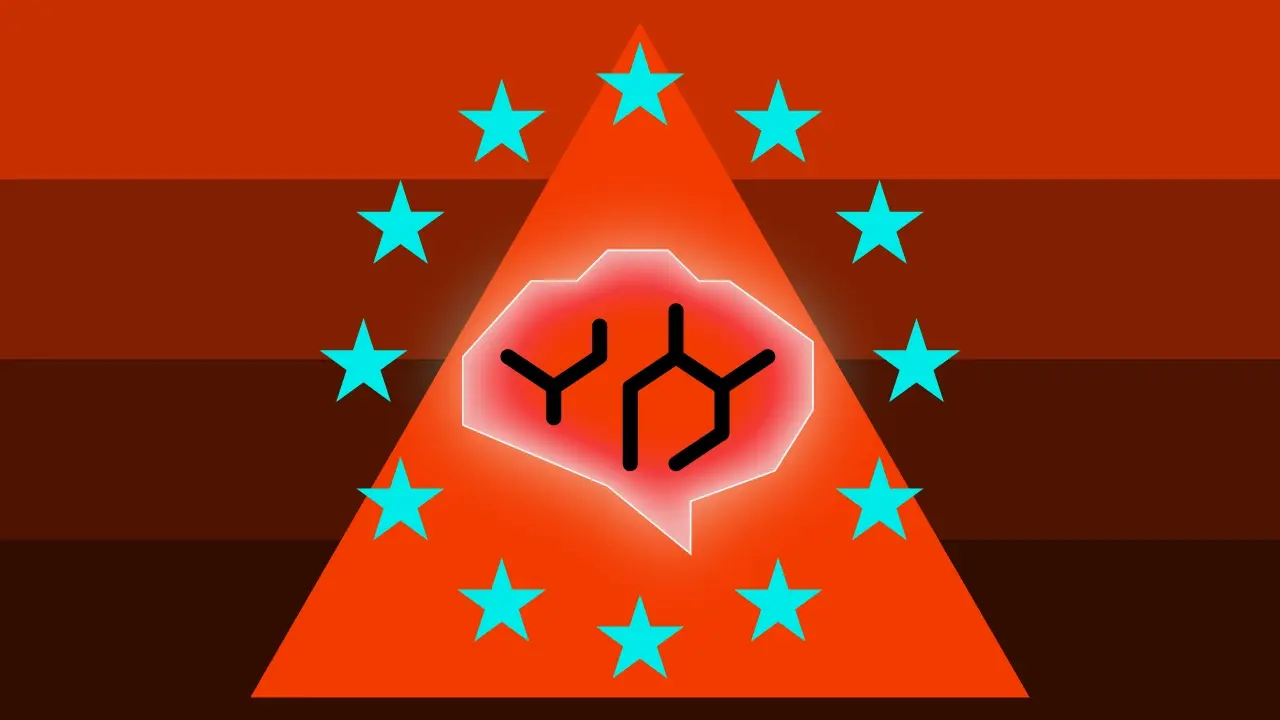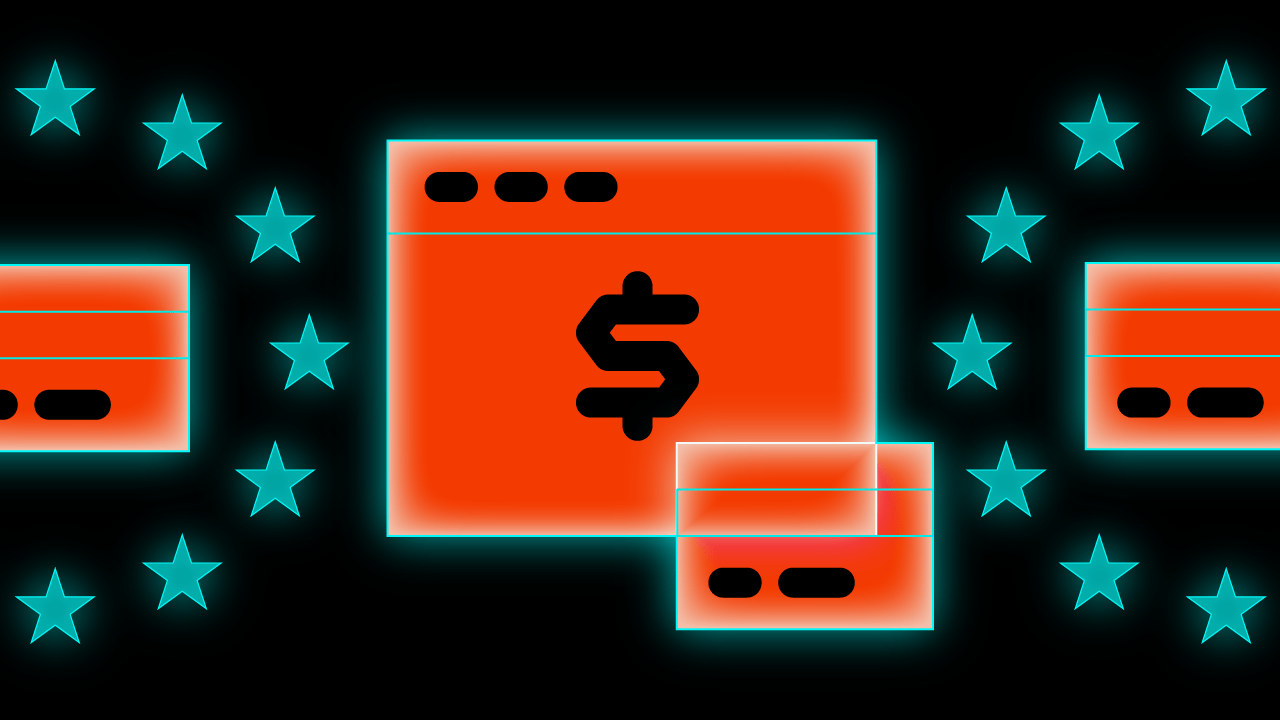#TeamSpeednet: Patryk, Java Developer


Meet Patryk, who told us about his work as a Java Developer. He shared the challenges of a rapidly changing IT market and his preferences regarding work style.
How long have you been working at Speednet, and how did you end up here?
Patryk: I’ve been working at Speednet for over two and a half years. I remember it well, I started at the beginning of 2022.
How did I end up here? Daniel found me on LinkedIn. He sent me a message, and then we had a brief chat, and that’s how it all started. Interestingly, it was only after signing the contract that I realized a friend of mine also worked here, so I immediately asked him if he was happy with the job, which reassured me that I had made the right decision.
Tell us a bit about yourself and what you do in your daily work.
Patryk: Currently, my responsibilities are quite varied. Besides programming in Java, I also work as a DevOps on a part-time basis (about 1/4 of my time). In one of the projects, I hold a dual role: I’m both a Java Developer and a DevOps. Since there are more Java developers on the team, I tend to focus more on DevOps tasks. However, when there are programming needs, I’m always happy to take them on as well.
The second project is entirely dedicated to DevOps, which presents a great challenge for me. Here, I’m learning how to operate in a role different from that of a developer and to view the project from a completely different perspective. It’s a new experience that allows me to step away from daily development tasks, and it’s quite interesting.
At the moment, I’m more fascinated by DevOps tasks because they are more engaging and, above all, offer a lot of opportunities for growth, as I’m learning many things on the go. In summary, I’m very satisfied with the projects I’m currently working on. Even though the first project can be difficult and demanding, the great atmosphere in both teams makes up for any project-related challenges.
What have been the biggest challenges in the projects you’ve worked on?
Patryk: I think the biggest challenge was the size of the project. It was definitely the largest project I’ve ever worked on. When I joined, I was surprised by the sheer amount of code and the complexity—both technical and business-related. I won’t hide that, at first, it was quite intimidating. The project had already been running for over two years, so I had to quickly absorb a huge amount of information.
For the DevOps project, the biggest challenge was dealing with new technologies. I had never worked as a full-time DevOps before; I only handled it occasionally. Here, I had to quickly switch to “full throttle” and familiarize myself with entirely new tools and processes.
Additionally, this is the first time in my career that I’m working on more than one project simultaneously. I’m still learning how to efficiently juggle both tasks. At the beginning, I sometimes felt lost, but each week I’m getting better at it, and I’m slowly developing a system that helps me manage my responsibilities smoothly. It’s difficult but also a very satisfying challenge.
I think it’s also worth mentioning that I previously worked at a product company where we developed our own products. Now, I’m learning a completely different work dynamic, where multiple projects are often carried out at the same time. Of course, there are pros and cons to every approach, but one of the biggest advantages of working at a software house is that I can always request a change of project if something doesn’t suit me or if I feel burned out. In a product company, that’s not an option—you’re “tied” to the core product. On one hand, it’s a great opportunity to specialize in a specific area, but on the other, it limits you to one industry. Even if you’re working on multiple products, they’re usually interconnected. Here, however, I can work in the banking sector today, and in the private sector tomorrow, which provides more variety and opportunities to grow in different fields.
How do you think the IT market has changed in recent years? Have you noticed any significant trends or changes that have directly affected your work?
Patryk: The IT industry has changed a lot over the past few years. Personally, I feel like I got in just in time—like jumping onto a moving train. There was a period when everyone wanted to work in IT. The image of a developer was almost mythical, seen as someone earning huge sums of money. It seemed like all you had to do was take a course, and job offers and money would start raining down. In my opinion, that phase has come to an end—the market has become saturated. Nowadays, employers are looking for more experienced specialists, and there are fewer opportunities for juniors.
As for the future, it’s hard to predict what will happen. I hope that the current decline is temporary and that we will soon see another wave of growth.
What else has changed? Probably the perception of developers themselves. The old stereotype of a solitary person sitting in front of a computer all day and never leaving the house is slowly fading. Ironically, despite the rise of remote work—which might seem to reinforce that stereotype—developers are becoming more open to collaboration, both within companies and with clients.
I remember when I first started, remote work was quite rare. Many employers were hesitant to implement it. Now, it’s clear that companies have adapted to this new reality. There was even a point where my record for not showing up at the office was six months. This illustrates how dynamic the IT industry is—not just in terms of technology, but also in work culture.
You co-organize the Fantasy Premier League at our company. How did that idea come about?
Patryk: The idea for the Fantasy Premier League came from the fact that I was already playing it before. I’ve always enjoyed a bit of competition, so when I joined the team, I knew this could catch on. Every week, you need to check in, get involved, follow the results, and update your team, which makes it a dynamic and exciting activity. It’s also a great opportunity for small talk with other players, helping to build connections and have fun together.
Do you participate in other company events, and if so, which ones do you enjoy the most and why?
Patryk: When it comes to other company events, I try to join whenever my schedule allows. I find our events to be interesting and always well-organized. Usually I attend our “Beautiful Fridays” because they are a great opportunity to meet with colleagues in a more relaxed atmosphere. I also enjoy themed events like Halloween, karaoke, steak tartare gatherings, or various challenges. Sometimes there are even surprises—those little details make the events really fun.
Another plus is that these events tend to attract a larger crowd, which fosters team integration. Overall, company events are a great way for me to build new relationships because I get to meet people who I don’t usually work with on projects.
What work mode do you prefer: remote or in-office?
Patryk: I prefer a hybrid work mode, depending on the situation. I enjoy working from the office, but I have to consider that I live in Gdynia, and sometimes commuting takes over an hour each way. I don’t always feel like spending that much time on the road. Generally, I like the office atmosphere, so I usually come in around three days a week. There are weeks when I’m there every day, but there are also times when I work entirely remotely.
I believe that working from the office makes it easier to maintain a work-life balance. A big advantage of our work system is its flexibility—I don’t have to be in the office strictly from 8 a.m to 4 p.m. I can come in, for example, at noon and work until 7 p.m, as long as I complete my tasks. This freedom suits me very well and allows me to adapt my work rhythm to my needs.
Do you think our office is adequately accessible for people with disabilities? What are your experiences with workplace accessibility for people with disabilities?
Patryk: Yes, I believe it is fully adapted to the needs of people with disabilities. I use both the office and the parking facilities, and I haven’t encountered any issues in this regard. Our office is located in relatively new buildings that have to meet modern accessibility standards, so from my perspective, everything is well-organized. I have no complaints on this front.
As for my general experiences with workplace accessibility, they have been mostly positive. Even if there were occasional challenges, they were always resolved with understanding and flexibility. For instance, I’ve been assigned a parking space closest to the entrance, or I’ve worked on a floor with accessible restrooms. I’ve never encountered a situation where something couldn’t be worked out. There was always a way to adapt the space to meet my needs.




